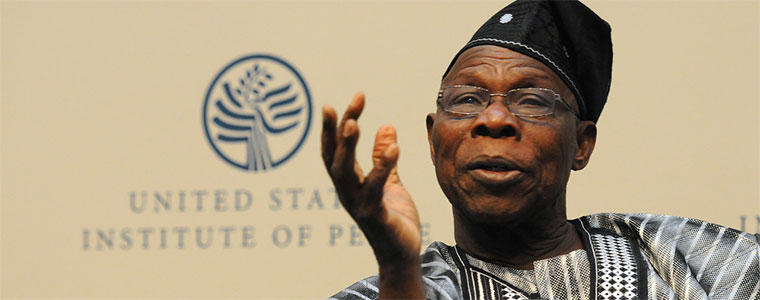What’s Right with Africa: Reframing Africa’s Leadership Challenges
Remarks and Discussion by former Nigerian president Obasanjo
Read the Event CoverageFormer Nigerian President Olusegun Obasanjo, who also has been a pivotal figure in the African Union, gave remarks at the U.S. Institute of Peace on April 22, exploring Africa’s leadership challenges in terms of “What’s Right With Africa.”

President Obasanjo was elected to the office in 1999, leading Nigeria's return to civilian democratic government after decades of military rule. During his two terms as president until May 2007, he played a major role in the creation of the Africa Union and in helping to resolve several political crises on the continent. Following his presidency, he has served as a special United Nations and AU envoy addressing some of Africa's most pressing problems.
President Obasanjo addressed USIP just weeks after Nigeria's historic election, where for the first time the opposition candidate won against an incumbent president. Other African nations face elections this year, including Sudan and the Central African Republic, while still others are struggling with leadership challenges.
Continue the conversation with #ObasanjoUSIP.



